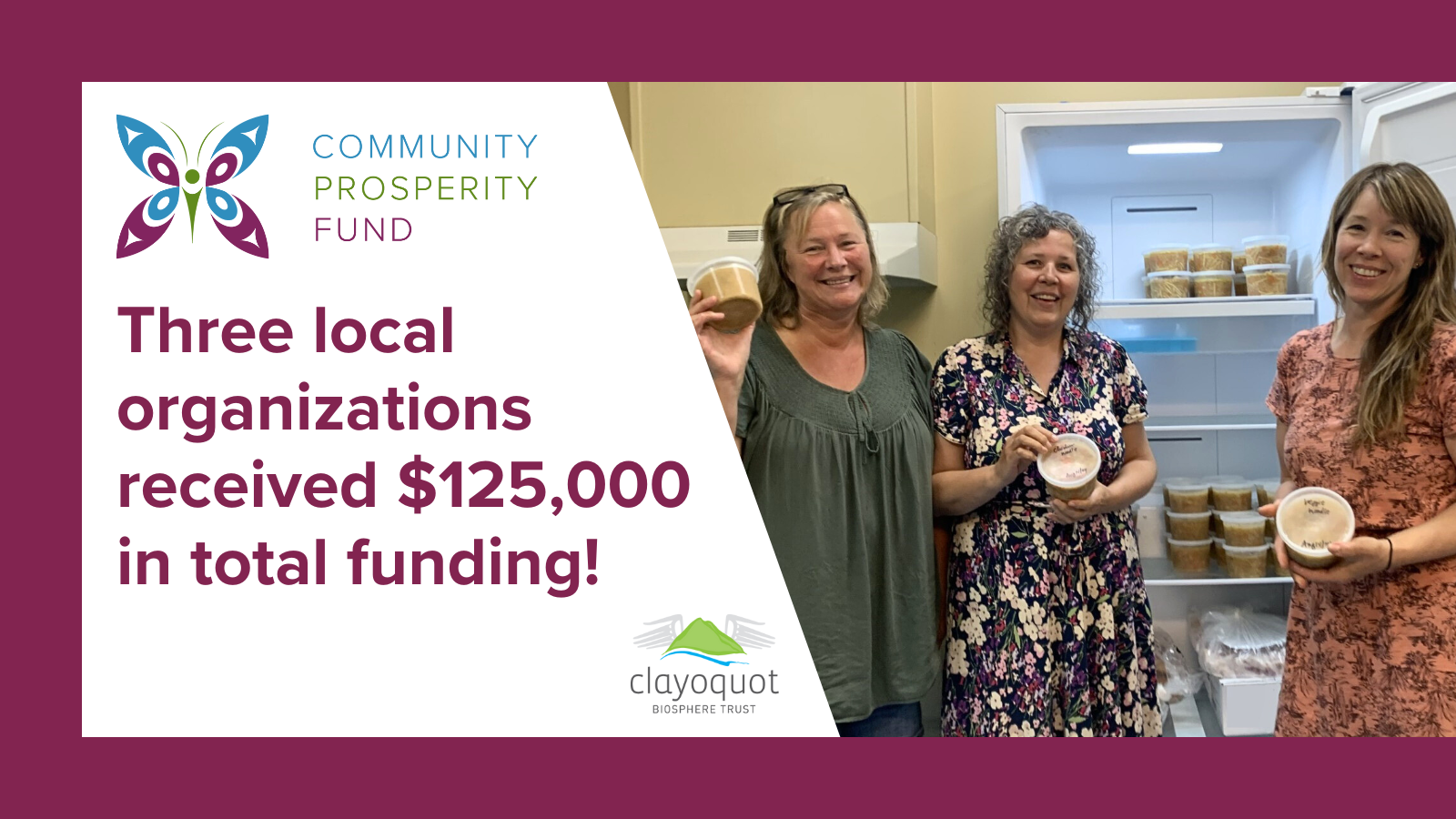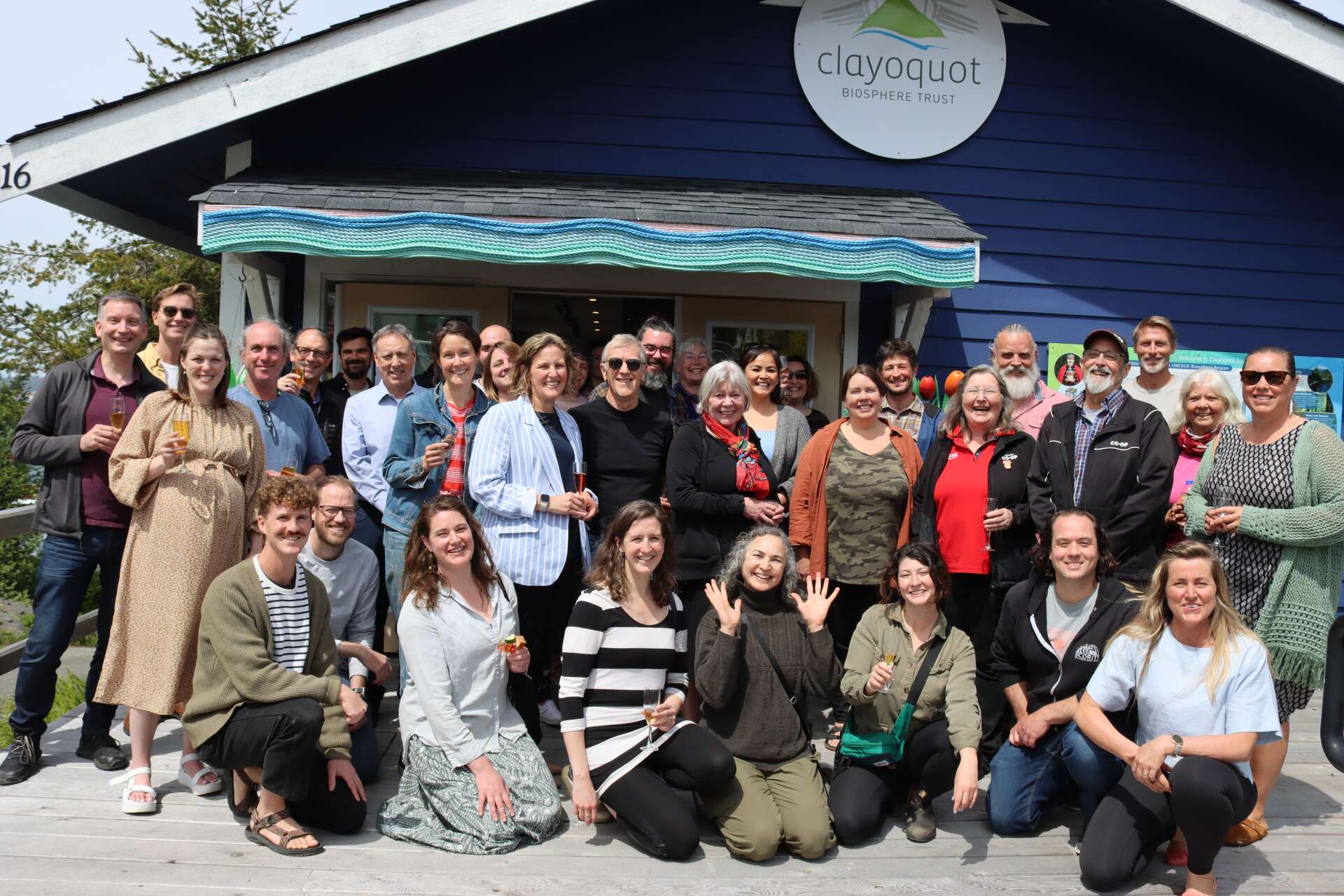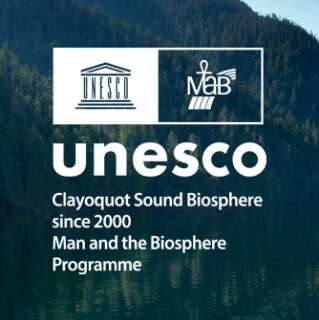February 3, 2026
We’re excited to share this list of grassroots community projects that received a Culture Neighbourhood Small Grants during the 2025 fall cycle. A total of 23 projects were funded in the region!
January 21, 2026
As we enter 2026, we’re reflecting on a powerful year of impact for the Clayoquot Biosphere Trust, one rooted in community leadership, innovation, and a shared commitment to a sustainable future for the region.
January 8, 2026
As we step into the new year, the Clayoquot Biosphere Trust (CBT) is proud to share a significant progress update on the Clayoquot Sound Biosphere Centre (CSBC) a community project grounded in local priorities, shaped by public input, and fueled by a shared commitment to a stronger, more resilient region.
November 7, 2025
Eat West Coast (EWC), is a CBT initiative that supports food security and sovereignty on the west coast. EWC bridges the biosphere and community foundation mandates by supporting local community-based responses to food system challenges.
November 5, 2025
Deep down in the basement of the Clayoquot Biosphere Trust office, you can find an archive containing hundreds of documents collected throughout the “war in the woods” era from the 1980s into the early 2000s. Think of it like the “paper-trail” of a nationally and globally significant regime shift from the colonial resource economy into the modern era. It’s an invaluable reference to a time when nuučaan̓uł (Nuu-chah-nulth) communities, tiny logging and fishing towns, municipal, provincial, and federal governments were all trying to figure out a sustainable way forward.
November 3, 2025
This past October, the Canadian Biosphere Regions Association (CBRA) and the Fundy Biosphere Region hosted a gathering to bring together representatives from Canada’s 19 Biosphere Regions. CBT was represented by Rebecca Hurwitz (Executive Director) and Janessa Dornstauder (Conservation Partnerships Coordinator).
September 25, 2025
On September 20th, we gathered to recognize a milestone: 25 years of the Clayoquot Sound UNESCO Biosphere Region. We are deeply grateful to everyone who joined us, community members, Elders, families, youth, and visitors. Your presence, spirit, and thoughtful attention brought the celebration to life and made it truly unforgettable. The energy on the school field was inspiring.
It was a day filled with appreciation, reflection, and joy as everyone came together to honour Indigenous knowledge and leadership, highlight 25 years of collaborative conservation and sustainable development, and look ahead with hope for the future.
September 5, 2025
We’re pleased to announce the recipients of the 2025 Vital Grants. This year, the CBT awarded $60,000 in funding to four inspiring projects in the region.
These grants focus on addressing regional priorities and complex challenges that influence sustainability in the Clayoquot Sound Biosphere Region. They also aim to support meaningful, longer-term collaboration between organizations, communities, and cultures. Read more!
September 4, 2025
We are pleased to announce the recipients of the 2025 Research & Environment grants. This year, the CBT awarded $20K in funding to four projects in the region. These projects address threats to key species and ecosystems and uplift nuučaan̓uł (Nuu-chah-nulth) ways of knowing. Efforts also focus on habitat conservation, restoration, and protection for ecologically and culturally important species and ecosystems. Read more!
August 26, 2025
We’re excited to announce the recipients of the 2025 Biosphere Research Awards! This year, the CBT has granted $38K to support three amazing projects. This funding stream supports initiatives that address key species or ecosystem threats, focus on reversing degradation trends, and promote conservation actions with broad application. Each program aligns with First Nations priorities and protocols, upholds the spirit of the UNESCO Biosphere designation, and shares research findings publicly. Read more!
August 26, 2025
This summer, CBT's Youth Intern, Braedon, has been supporting us in a wide range of projects across the organization and has also participated in initiatives hosted by other local non-profits. One of our goals was to offer him the opportunity to experience diverse types of work as well as acquire skills and knowledge in many different fields.
Discover Braedon’s experience joining Surfrider Pacific Rim and Tourism Tofino for their “Washed Up Wednesday” beach clean. Read on for his reflections.
August 8, 2025
Pani Ayoubizadeh from Ucluelet received the Clayoquot Sound Biosphere Education Award in 2022 and is currently studying science at the University of British Columbia, working toward her dream of becoming a cardiac surgeon. She has earned straight A’s every year so far, a testament to her incredible dedication and drive.
Recently, Pani reached out to share an update on her academic journey and the personal growth she has experienced since receiving the award. Read more about her story!
August 7, 2025
The CBT is seeking expressions of interest in a 4-year volunteer term as Alternate At-Large Director.
The CBT exists to support research, education and programs that advance conservation, the understanding of natural processes in the marine and terrestrial ecosystems and that promote the health of individuals and communities in the Clayoquot Sound Biosphere Region.
The CBT relies on the vision and strategic direction of a committed Board of Directors representing a diversity of experience, skills and interests supportive of the Clayoquot Sound UNESCO Biosphere designation.
July 3, 2025
This past May, members of our staff and board had the privilege of attending Illuminate 2025, the national biennial conference hosted by Community Foundations of Canada, which was held in Kjipuktuk (Halifax), Nova Scotia, on the ancestral and unceded territory of the Mi’kmaq people. More than just a conference, it was a powerful gathering of community foundations from across the country, a space for meaningful connection, shared learning, and lasting inspiration.
June 19, 2025
We’re excited to share this list of grassroots community projects that received a Green/Youth Neighbourhood Small Grants (NSG) this past spring cycle. A total of 19 projects were funded in the region! NSG makes empowering, accessible opportunities for residents from all demographics to make their communities more inclusive and vibrant places to live. Check out the blog below to learn more about the projects from the Clayoquot Sound Biosphere Region NSG program.
June 16, 2025
This past May, the CBT hosted the 4th annual BC Biosphere Gathering in our home region. Each year, this gathering brings together partners from British Columbia’s three UNESCO-designated biosphere regions, Clayoquot Sound, Mount Arrowsmith, and Átl’ka7tsem/Howe Sound, for a multi-day opportunity to connect, collaborate, and grow stronger together as a network.
May 23, 2025
Nestled in the heart of the Clayoquot Sound UNESCO Biosphere Region, a transformative initiative from the Clayoquot Biosphere Trust (CBT) is redefining the role of public art in cultural renewal, place-making, and reconciliation. The Clayoquot Sound Biosphere Centre (CSBC), currently under development in Tla-o-qui-aht First Nations territory, is envisioned as a knowledge hub for education, research, and reconciliation. At the core of this vision is a groundbreaking Arts Program, one that doesn’t just decorate a space but infuses the region with meaning.
 Left to right - Tarni (Pacific Rim Hospice Society), Leah (District of Tofino) and Pangiota (Better at Home)
Left to right - Tarni (Pacific Rim Hospice Society), Leah (District of Tofino) and Pangiota (Better at Home)
